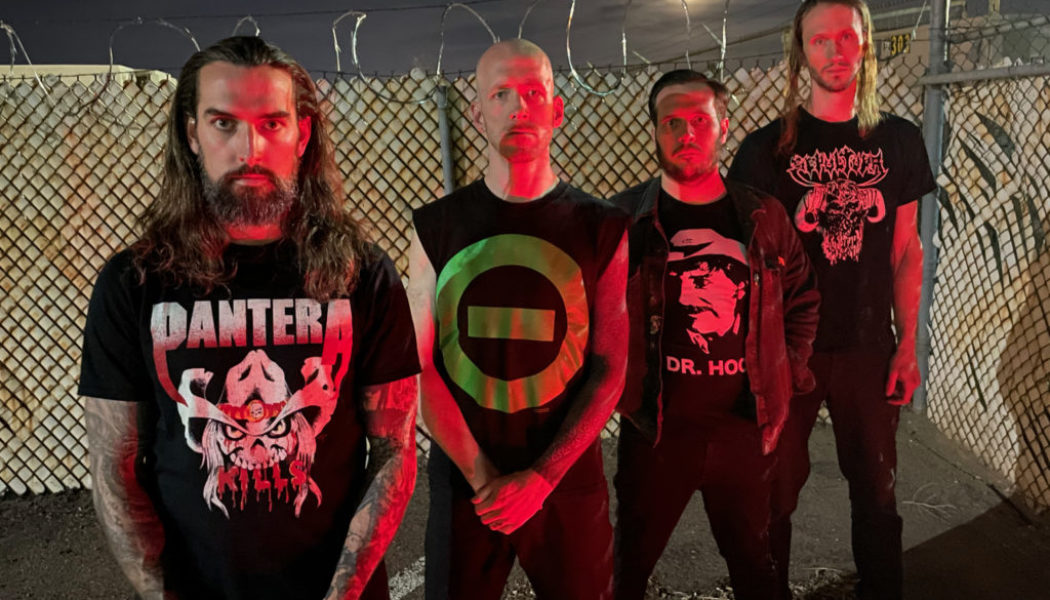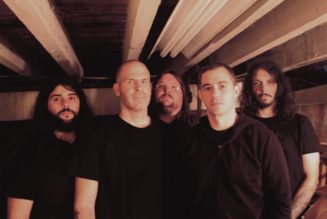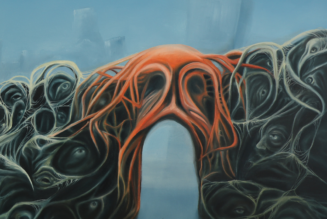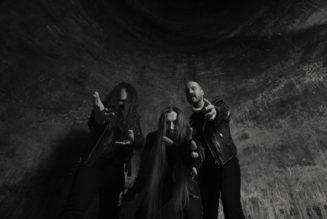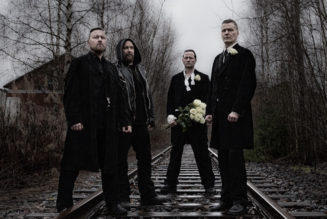
It’s not often that you get one of America’s finest contemporary heavy metal composers in your proverbial backyard, but for the Austin area, having Nate Garrett around is a game-changing acquisition. Spirit Adrift, his main concern, distills his love of Dio-era Black Sabbath’s huge melodies, chunky palm-muted thrash riffing, Maryland doom’s weariness, a touch of ZZ Top boogie into his own blend that’s triumphant as it is soul-searing. Not only does he bring the heat on guitar, he wails like the angel who must’ve brought Dusty Hill himself up to the pearly gates. Metal bands love to wear their influences on their sleeve (sometimes quite literally), but Garrett is more driven by his sheer love for metal’s eternal vitality. If there was ever a modern band that was the complete package, Spirit Adrift is it.
Texas was his destiny, and it would’ve been the semi-homecoming for the ages (he’s originally from Arkansas and spent time in Arizona, most notably with Gatecreeper) were it not for the pandemic. However, perseverance is his game, and COVID wasn’t going to keep Spirit Adrift off one hell of a hot streak. Last year, they released Enlightened in Eternity, just a year after the juggernaut record Divided By Darkness, and later this month, they’ll release the EP Forge Your Future through Century Media. The only thing that’s changed is the serving size: these three songs are as big as the plains of his new home. Spirit Adrift are still ready to take on the world, fucked up as it is.
Read my chat with Garrett below.
SPIN: You seem to be working almost non-stop on new material, but was motivation an issue during COVID? What was life like for you the past year?
Nate Garrett: Motivation’s always an issue. I mentally quit music every day, even before the pandemic. I really love doing it, but when you get to the point when you’re touring and people expect certain things from you and maybe there’s frustrations that come with the business side of things – when you start mixing your business and your passion, it gets pretty complicated. I will mentally quit music every day, then convince myself not to quit, and I get to work. The pandemic really wasn’t that much different. I think the fact that I haven’t been touring allowed me to put more hours into the songs than I ever had. The EP, I was able to put more focus into it. Same for the next record, I just finished demoing the next record – I’ve never gotten that microscopic with anything.
How do you convince yourself to get back into things any time you “quit music?”
I’ve heard a phrase that has really helped me in my life – “I cannot think myself into correct action. I have to act myself into correct thinking.” I don’t exactly know how I’m able to take action when I don’t want to, but that’s what I do. When I don’t wanna play guitar – sometimes, I won’t be able to take that action for a while. There will be stretches that last for a little longer than they should where I’m not playing guitar, not writing, not practicing my craft. But as soon as I take that action, it can start a chain reaction that turns on the manic-obsessive part of my brain and then it’s on, then I’m working on stuff every day. I just have to act.
The title track definitely feels like a call to action when things are so topsy-turvy, an anthem. Would you say that’s so?
That’s what I was going for. Judas Priest and Dio, a lot of their vibe — a lot of the lyrics [Rob] Halford wrote and a lot of the lyrics [Ronnie James] Dio wrote, a lot of it was us against the world. “Take on the World” by Judas Priest – it was empowering. Usually with me, the music will dictate the lyrical direction, and I thought that song sounded empowering and powerful in the same way guys like Halford and Dio empowered people. The lyrics were dictated by that line of thinking. I don’t write a lot of songs that are strictly a hypothetical narrative situation where I’m telling a story that’s not from direct personal experience of mine. With that song, I wanted to get more into the realm of imagery and setting and storyline, kind of like what Dio did. Not fantasy – there’s some knight in shining armor metaphors and shit like that. I wrote the song thinking that it’s a purely hypothetical narrative, but so many people that have heard it have told me it relates so directly to what everyone’s going through right now. An old friend of mine was like “That’s the realest shit you ever wrote.”
You’re leaning hard into ‘80s Sabbath once again, and I’m really here for it.
My friend Chuck [Schaff] from Deadbird, he was hard on me about the ‘80s and Tony Martin Sabbath. For whatever reason I never took his advice, which I’ve learned now to always take Chuck’s words of advice on anything. It was a little while later when I was in Arizona when I finally listened to Headless Cross, and it was the right time in life to discover that stuff. I think some of Tony’s best riffs are in those more obscure, later-period albums. My two favorite records that came out this year are the Heaven and Hell and Mob Rules remasters. I talked to Zeuss, who mastered our new EP, and the first thing we started talking about was Martin Birch, man. Sabbath plus Martin Birch plus Dio was not even fair.
If someone were to finally plunge into ’80s Sabbath – and not even the Dio stuff – would you say Headless Cross is the place to start, or where?
I was an Ozzy diehard and what got me out of that was Mob Rules. So if you’re an Ozzy diehard, listen to Mob Rules and listen to “Sign of the Southern Cross” or listen to Heaven and Hell and the song “Children of the Sea.” And once you get a taste of that — I think Tony Martin sings real similarly to Dio, and Headless Cross I would say is his best record with them. I also like some of the songs from [The] Eternal Idol a lot, “The Shining” is really good. Preston, who’s playing guitar for us now, found a sealed copy of Seventh Star, which is Iommi’s solo record but they called it Black Sabbath, the record label insisted, and there’s even cool stuff on that. There’s even cool stuff off Cross Purposes, which was a 90s Tony Martin album – “Cross of Thorns” is badass. Iommi, he never stopped writing really cool riffs.
More tunes for when you’re living in a time machine and you can choose just who you are:
Wreck and Reference – “Change (In the House of Flies)” (Deftones cover) (The Flenser)
The Flenser’s upcoming compilation Send The Pain Below will have their artists taking on nu-metal classics, and Los Angeles’ Wreck and Reference heap mountains of anxiety upon this Deftones classic. Last month’s featured Blast Rites artist, Midwife, will also have a song on the comp.
Diskord – Degenerations (Transcending Obscurity)
Pit Vipers and “caveman riff” memes aren’t hard. You know what’s hard? Electric upright bass. The latest from this Norwegian trio takes Cynic’s prog-death into more jagged, nightmarish realms, complete with fretless glides, and it’s this year’s unexpected death metal surprise.
Woman Is the Earth – “Spiritual Rot” (From Dust of Forever, out Friday on Init)
South Dakota’s premier black metal band returns with another blast of ravaged beauty. A gem too glistening to stay hidden. (Stream “Rot” here.)
